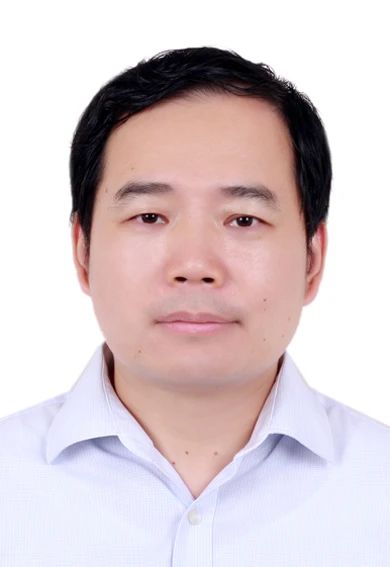
| Prof. Dr. Wan Mohd Nasir Wan KadirUniversiti Teknologi Malaysia, MalaysiaBIO: Ts. Dr. Wan Mohd Nasir Wan Kadir is a Professor in Software Engineering at the Faculty of Computing, Universiti Teknologi Malaysia (UTM). He received his BSc. from Universiti Teknologi Malaysia, MSc. from UMIST, and Ph.D. from The University of Manchester. He has been an academic staff at the Faculty of Computing for over 25 years (since 1997). He was the Head of the Software Engineering Department from 2005 to 2009, Deputy Dean (Development) of the Faculty of Computing from 2010 to 2015, Deputy Director of the Center for Academic Leadership and Professional Development (CALPD), UTMLead from 2015 to 2016, Director of CALPD from 2016-2018, and Chair of the School of Computing from 2019-2022. He is currently the Dean of the Faculty of Computing, UTM. He is also currently the Chairman of the Malaysia Council of ICT Deans (MaDICT) and Head of the ICT Cluster at the National Council of Professors (MPN). |
Professor Fakhri KarrayFellow of the Canadian Academy of EngineeringIEEE FellowUniversity of Waterloo, CanadaBIO: Fakhri Karray is the inaugural co-director of the University of Waterloo Artificial Intelligence Institute and served as the Loblaws Research Chair in Artificial Intelligence in the department of electrical and computer engineering at the University of Waterloo, Canada. He is also Professor of Machine Learning and held the position of Provost at the Mohamed bin Zayed University of Artificial Intelligence (MBZUAI), a research-oriented artificial intelligence (AI) institution in Abu Dhabi, UAE. Fakhri's research focuses on operational and generative AI, cognitive machines, natural human-machine interaction, and autonomous and intelligent systems, with applications to virtual care systems, cognitive and self-aware devices, and predictive analytics in supply chain management and intelligent transportation systems. Notably, Fakhri and his research team's work on deep learning-based driver behavior recognition and prediction has gained recognition in The Washington Post, Wired Magazine, Globe and Mail, CBC radio, and Canada's Discovery Channel. He also holds editorial roles in major publications related to intelligent systems and information fusion. Fakhri's latest textbook, "Elements of Dimensionality Reduction and Manifold Learning," was published by Springer Nature in early 2023. In 2021, he was honored by the IEEE Vehicular Technology Society (VTS) with the IEEE VTS Best Land Transportation Paper Award for his pioneering research on enhancing traffic flow prediction using deep learning and AI. Furthermore, his research on federated learning in communication systems earned him and his co-authors the 2022 IEEE Communication Society's MeditCom Conference Best Paper Award. Fakhri is also the co-founder and Chief Scientist of Yourika.ai, a provider of AI-based online learning systems. He holds fellowship status in the IEEE, the Canadian Academy of Engineering, and the Engineering Institute of Canada. Additionally, he has served as a Distinguished Lecturer for the IEEE and is a Fellow of the Kavli Frontiers of Science. Fakhri earned his Ph.D. from the University of Illinois Urbana-Champaign, USA. Title: Prospects on Generative AI: Milestones and Societal Impact Abstract: The presentation discusses recent developments and notable progress in Artificial Intelligence (AI), specifically Generative Artificial Intelligence (GAI). Remarkable achievements in this field, including ChatGPT, BARD, LLaMA, and other generative AI engines, coupled with advancements in machine learning and AI tools, suggest we stand on the brink of a transformative technological revolution with unprecedented implications for humanity. Projections indicate that AI could boost the global GDP by as much as 20% by 2025, equivalent to over $15 trillion in growth within the coming years. These advancements have significantly influenced innovation in various domains, such as the Internet of Things, autonomous machinery, robust chatbots, virtual assistants, human-machine interfaces, extensive language models, real-time translators, cognitive robotics, accurate disease diagnosis, remote healthcare monitoring, financial market forecasting, and Fintech, among others. While AI encompasses a range of interconnected technologies, all aimed at emulating aspects of human intelligence and decision-making, transformer algorithms are recognized as the driving force behind AI's explosive expansion, permeating nearly every sector of the modern global economy. The presentation outlines key milestones that have driven the current GAI growth, emphasizing the roles of academic institutions, industry, and government. Additionally, it delves into critical concerns related to security, governance, and privacy, highlighting the potential for significant negative impacts on society and end users if not promptly and effectively addressed. |
|
| Professor Simon X. YangUniversity of Guelph, CanadaBIO: Prof. Simon X. Yang received the B.Sc. degree in engineering physics from Beijing University, China in 1987, the first of two M.Sc. degrees in biophysics from Chinese Academy of Sciences, Beijing, China in 1990, the second M.Sc. degree in electrical engineering from the University of Houston, USA in 1996, and the Ph.D. degree in electrical and computer engineering from the University of Alberta, Edmonton, Canada in 1999. Prof. Yang joined the School of Engineering at the University of Guelph, Canada in 1999. Currently he is a Professor and the Head of the Advanced Robotics & Intelligent Systems (ARIS) Laboratory at the University of Guelph in Canada. Prof. Yang has diversified research expertise. His research interests include intelligent systems, robotics, control systems, sensors and multi-sensor fusion, wireless sensor networks, intelligent communications, intelligent transportation, machine learning, and computational neuroscience. He has published over 550 academic papers, including over 350 journal papers. He has been listed on the World’s Top 2% Researchers by Stanford’s Standardized Citation Indicators from 2021 to 2023. Prof. Yang he has been very active in professional activities. Prof. Yang has served as the Editor-in-Chief of Intelligence & Robotics, and some other journals; and an Associate Editor of IEEE Transactions on Cybernetics, IEEE Transactions on Artificial Intelligence, and several other journals. He has been involved in the organization of many international conferences. Title: Advanced Intelligent Approaches to Agricultural and Environmental Engineering Systems Abstract: Research on intelligent systems, particularly biologically inspired intelligence, has made significant progress in both understanding the biological systems and developing bionic engineering applications to various agricultural engineering systems. In this talk, I will start with a very brief introduction to the general intelligent systems, with a focus on some biologically inspired intelligent systems approaches. Then I will present on our current research on intelligent systems with applications to various agricultural engineering systems, such as intelligent real-time monitoring and control of livestock odors with a wireless e-noses network system, intelligent monitoring and control of the drying processes in meat and tobacco industries, intelligent data analysis and classifications of oranges and tobacco leaves based on near infrared spectroscopy, and intelligent robotic systems for harvesting of tomatoes and other vegetables and fruits. In addition, the cutting-edge deep learning methodologies, such as the Spatio-Temporal Attention Long Short Term Memory (STA-LSTM) model and Spatio-Temporal Attention Gated Recurrent Unit (STA-GRU) model, are developed for flood forecasting and monitoring of water quality and other environment factors, heralding a significant leap forward in environmental modeling techniques. |
Professor Xinyu WuOutstanding Young Scholars of National Natural Science Foundation of ChinaShenzhen Institute of Advanced Technology, Chinese Academy of Sciences, ChinaBIO: Xinyu Wu, PhD supervisor, Professor, recipient of the National Outstanding Youth Fund, leader among the National Ten Thousand Talents Program, and a member of the Expert Group for the Intelligent Robotics Special Project under China's National Key R&D Program during the 13th and 14th Five-Year Plans. Currently, Dr. Wu serves as the Deputy Director of the Institute of Integration Technology at the Shenzhen Institute of Advanced Technology, Chinese Academy of Sciences, the Director of the Center for Intelligent Bionics, and the Head of the Guangdong Provincial Key Laboratory of Intelligent Robots and Systems. Currently, his primary research focuses on the fundamental theories and key technologies of human-robot integrated service robots. He has published over 260 papers in prestigious international journals such as IEEE Transactions on Robotics (TRO), IEEE Transactions on Automation Science and Engineering (TASE), IEEE Transactions on Industrial Electronics (TIE), and IEEE Transactions on Systems, Man, and Cybernetics (TSMC), as well as in major international robotics conferences including ICRA and IROS. He has also authored two English monographs. Dr. Wu has consistently been included in Stanford University and Elsevier's global list of the top 2% most influential scientists. He was ranked first in receiving the First Prize of Guangdong Province Science and Technology Progress Award (2022), the First Prize of Science and Technology Award from the China Instrument and Control Society (2018), and the First Prize of Shenzhen Science and Technology Progress Award (2018), among other scientific research accolades. He serves as a Council Member of the Chinese Association of Automation and the Council Member of the China Instrument and Control Society. Title: Development and Reflections on Exoskeleton Robotics Abstract: Exoskeleton robots hold significant application prospects in areas like assisting the elderly and disabled individuals, as well as material handling in logistics, where the degree of human-robot integration directly impacts the efficacy of aid and mobility support. The report comprehensively introduces the cutting-edge research and current development status both domestically and abroad in lower limb exoskeletons across various specialized domains. It consolidates and summarizes the common challenges confronted in the advancement of human-robot integrated exoskeleton systems. With a focus on exemplary systems developed by the Shenzhen Institute of Advanced Technology, Chinese Academy of Sciences (SIAT CAS), including self-balancing lower limb exoskeletons, flexible-stiffness adaptive exoskeletons, and load-assist exoskeletons, the report delves into crucial technologies such as coupling modeling of human-exoskeleton systems, structurally compatible design, motion intent recognition, and high-precision force-position control. Ultimately, it assesses the technological trajectories for achieving deeper integration and synergy between humans and exoskeletons. |
|



